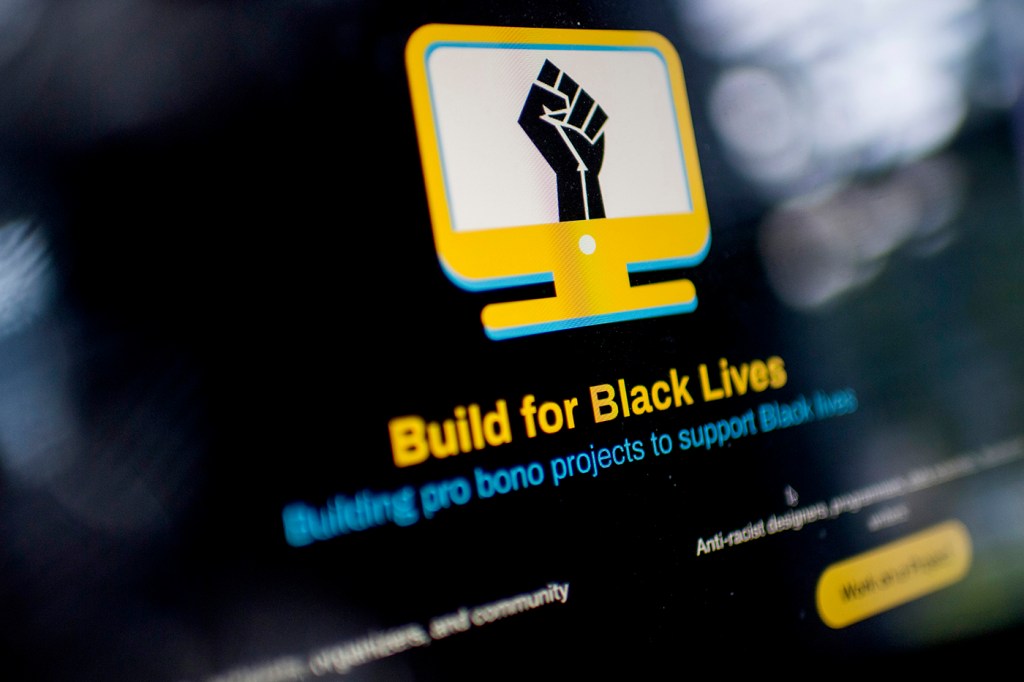Can technology reduce racial inequity? Build for Black Lives could help.

A nonprofit organization for Black, Indigenous, and other communities across the Merrimack Valley of Massachusetts needs help building a mobile application to keep followers up to date on news and upcoming events, help people find businesses owned by Black and brown people, and connect with others in their communities.
A business conference in Pittsburgh, Pennsylvania for minority-owned startups is requesting assistance curating content on its social media platforms, updating its website, and finding new ways to broadcast its news and updates.
And a nonprofit organization of professional and student social workers that works to address the emotional needs of the Black community could use support in building a website that is user friendly, interactive, and easy to manage.

Nupur Neogi, left, and Ifteda Ahmed-Syed. Courtesy photos
The project requests are listed on a new online platform called Build for Black Lives, launched by students at Northeastern who are members of HackBeanpot, a hackathon based in Boston. Inspired by the activism that transpired in the wake of George Floyd’s death in police custody in May, the members came together the following month to pool their resources and technology know-how to support Black people, says Nupur Neogi, a fifth-year computer science student, and Ifteda Ahmed-Syed, a fourth-year computer science and business major.
“Our immediate reaction at HackBeanpot was to try to get resources out to our communities through social media, but then we took a step back and said let’s try to think of more actionable initiatives that we could take that would be more beneficial and force our community to reflect a little more,” says Ahmed-Syed. “And that’s [how] Build for Black Lives came about.”
The platform helps connect people who have technology and design skills with activists, organizers, and Black-owned businesses. Through the platform, Black-owned businesses, organizations, and advocacy groups can submit project requests for various technical services such as website creation, mobile applications, data visualizations, graphics, social media, and digital marketing. Volunteers can peruse the requests, see where they can contribute, and contact the group directly to offer their help.
The killing of George Floyd inspired the students to reflect on the enduring racial inequalities in their communities, and how they could combat injustice through technology.
“We realized as a club we wanted to take a very set stance and leverage our community that we have to start working toward making for a more equitable community, especially in tech,” says Neogi.
Through this work, the students are also hoping to shine a light on problems within the world of artificial intelligence and facial recognition. Examples of machines discriminating in ways that are harmful to anyone who isn’t a white man are well-documented. Neogi and Ahmed-Syed say one way to solve these issues is to include diverse viewpoints in the development of products.
“A lot of software communities and people doing the testing from the beginning to the end of a product’s life may not be thinking about aspects of race, ethnicity, and identity, because they’ve never had pressures from that,” Neogi says.
At the same time, she says, technology can enable people to create online communities, share information and resources, and break down barriers.
The Floyd incident motivated Ahmed-Syed to get back into social justice activism after a long hiatus. Neogi says it inspired her to take it up for the first time since starting college.
“I realized there’s so much I don’t know and so much I have to educate myself on, and as a person of color I can’t just assume I understand other people’s experiences,” Neogi says. “There was a personal push to start learning, and as part of the HackBeanpot community, all of us together wanted to be better in taking action.”
For more information, or to get involved visit the Build for Black Lives website.
For media inquiries, please contact media@northeastern.edu.




